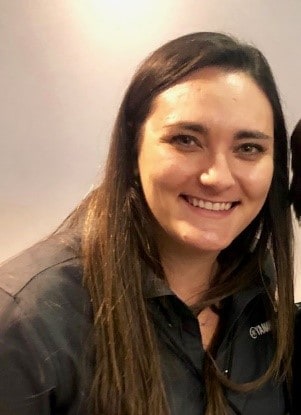Onward Means Consumer Protections
THE VBP Blog
Over the last few decades, advocates and regulators have worked tirelessly to build in significant protections in the way services are delivered. We’ve been fighting for things such as independent living in the community, smaller group homes, privacy in each room, and community integration. In the current COVID-19 crisis, we see many of these regulations being waived, in the name of emergency flexibility and the ability to provide services efficiently. We’re also seeing individuals with disabilities being pushed to the back of the line in some states.

We see three ways to look at this abrupt change.
- One, there are a number of burdensome regulations we should reconsider. The pandemic is just exposing the ones that aren’t needed.
- Two, on the flip side, many of the regulations being waived may expose consumers to risks. Access to education, consumer choice, and residential services are just a few examples. As the virus spreads in the short term, homes are getting more crowded and bedrooms are being doubled up. We can all accept that for right now, but how can we ensure these hard-fought rights are restored?
- The third view: we can examine the 1135 waiver that provides flexibility during a disaster or emergency, allowing the federal government to waive or modify certain Medicare, Medicaid, and CHIP requirements so consumers can receive health care services. The Medicaid Federalist Match (FMAP) was increased by 6.2%. Meaning each state is now getting $1.062 for every dollar they are spending. Where is that money going? It should be going directly to service providers and consumers. However, the states could keep it, or allocate it to the health plans.
We reached out to our community for their input on how consumer protections are being treated.
Donna Martin, the Director for State Partnerships and Special Projects at American Network of Community Options and Resources (ANCOR) gave us this feedback: “The community-based infrastructure in this country was facing a workforce crisis long before the COVID-19 outbreak, but this extraordinary virus has accentuated the weaknesses in our systems not only pertaining to the ability to maintain levels of support, but also access to care and the ability to ensure that peoples’ rights are protected. During this unprecedented time, it is essential that community- based organizations have the resources and sufficient flexibility to meet the changing needs of people they serve, while at the same time ensuring that individuals’ rights, access to services, and medical supports are equal to their non-disabled neighbors.”
Michael Grier, the Executive Director at Pennsylvania Council on Independent Living, takes a positive advocate approach. “Our country is in a time of crisis like never before. As an association that represents people with disabilities across the entire state, the Pennsylvania Council on Independent Living (PCIL) is committed to continue to strongly advocate for the rights of people with disabilities for total inclusion. We will continue to assure that people with disabilities are prioritized when developing policies regarding emergency preparedness, preventative healthcare and equal access to services. An example of this advocacy was an extensive campaign to contact congress during the recent discussions on the stimulus package. As Americans we believe that we will come out of this pandemic and will be stronger than ever before.”
Bob Grove, Assistant Superintendent at Central York School District, describes how schools are being affected: “Public education continues to be the consistency that society relies upon during these unprecedented times. The collective dedication towards the wellbeing of all students and their families does not diminish, but rather flourishes. School systems remain fluid entities as they deliver timely services such as opening food pantries, providing daily breakfast and lunch, as well as supporting federal or state requests for becoming a community point of distribution. Through it all, public education innovates, and models resiliency. As we in education practice social distancing, online learning is being refined and delivered, along with promoting the social and emotional wellbeing of our learners. Public education has been, and will continue to be prepared to respond to the ever-changing needs of society.”.
Peri Jude Radecic of Disability Rights Pennsylvania led a group of 30 organizations in commenting on and filing a complaint with the US Department of Health and Human Services, challenging PA’s guidelines for rationing of health care. These rationing guidelines were developed without any input from the disability community and clearly jeopardized the lives of people with disabilities.
Our colleague Shona Eakin, the CEO of Voices for Independent Living, went public about her concerns for these priorities, stating, “It’s always in the back of my mind — will they value me as a woman, as a wife, as a mother, as a professional? Or will I be looked at differently because I have a disability?” You can see her entire article here.
However , there was encouraging news this week as the advocates’ efforts resulted in modifying the published priorities, with the stated goal that “no one is denied care based on stereotypes, assessments of quality of life, or judgments about a person’s ‘worth’ based on the presence or absence of disabilities or other factors.” Certainly, something to take heart in, while remaining vigilant against any suggestions of rationing in healthcare.
Advocate’s Perspective: The voice of our community is clear, the emergency has to be addressed, but we should not allow it to impact the rights of consumers or the services we fought for. We can see the system weaknesses and opportunities, and we must seek ways to improve them. We need to expedite getting the funds from the Federal Government directly to the providers. Our commitment to speak up with our community is unwavering.
Onward!
Fady Sahhar & Mandy Sahhar
Get even more insights on Linkedin & Twitter

About the Author
Fady Sahhar brings over 30 years of senior management experience working with major multinational companies including Sara Lee, Mobil Oil, Tenneco Packaging, Pactiv, Progressive Insurance, Transitions Optical, PPG Industries and Essilor (France).
His corporate responsibilities included new product development, strategic planning, marketing management, and global sales. He has developed a number of global communications networks, launched products in over 45 countries, and managed a number of branded patented products.

About the Co-Author
Mandy Sahhar provides experience in digital marketing, event management, and business development. Her background has allowed her to get in on the ground floor of marketing efforts including website design, content marketing, and trade show planning. Through her modern approach, she focuses on bringing businesses into the new digital age of marketing through unique approaches and focused content creation. With a passion for communications, she can bring a fresh perspective to an ever-changing industry. Mandy has an MBA with a marketing concentration from Canisius College.